
Commentary and Press Release
Brakes *IN* Your Handlebars? Magura Launches the MCi System
I often marvel at the current polarization of social issues. As some trends push toward an extremely liberal agenda, others swing the needle just as far in an ultra conservative vein. The same is true in mountain biking; while some companies are trying to make it easier for you to deal with your rear brake lines, by mounting them externally or providing a clever hatch like Guerrilla Gravity, another company is adding complexity and making installation, removal and line replacement vastly more complicated and difficult - for both front and rear lines.
Do not get me wrong; I'm not saying Magura should be prevented or even dissuaded from producing a system that isn't seen as beneficial in any way to most riders, which I believe will be the case here. At the same time I wonder why they would put energy and resources into a product with such narrow appeal. But please, knock yourself out.

These are not wireless. Nor are they wired. These are conventional brake levers mounted to a cable that lives inside your bar, with the master cylinder. Photo - Cam McRae
I need to come clean about something though. The first time I saw SRAM's AXS wireless system I immediately asked about brakes. Everything looked amazing and the removal of the dropper line and shifter cable made the bike look incredibly clean and modern, except for the brake lines. I wondered about a system that allowed a lever to send a signal to a servo motor at the caliper that could push hydraulic fluid to engage the pistons. Of course the issue here is reliability. There is no acceptable rate of interference or failure for a wireless brake system so it may be some time before we see it, but it would look so great and also be dead simple to install and remove, which this one is not.
And I'm not forgetting that Magura makes some great products either. Magura disc brakes are world class and they are even making a cool niche product for those of us who rider a lot in winter; heated grips! While it's true they are only available or e-bikes to begin with, a conventionally battery powered version can't be far off. And Magura's recent efforts to allow riders to choose the grip of their preference and even select levers that can be customized to fit the rider and the terrain, are examples of a rider-centric focus to product development. Which seems to be the opposite of what is happening here.
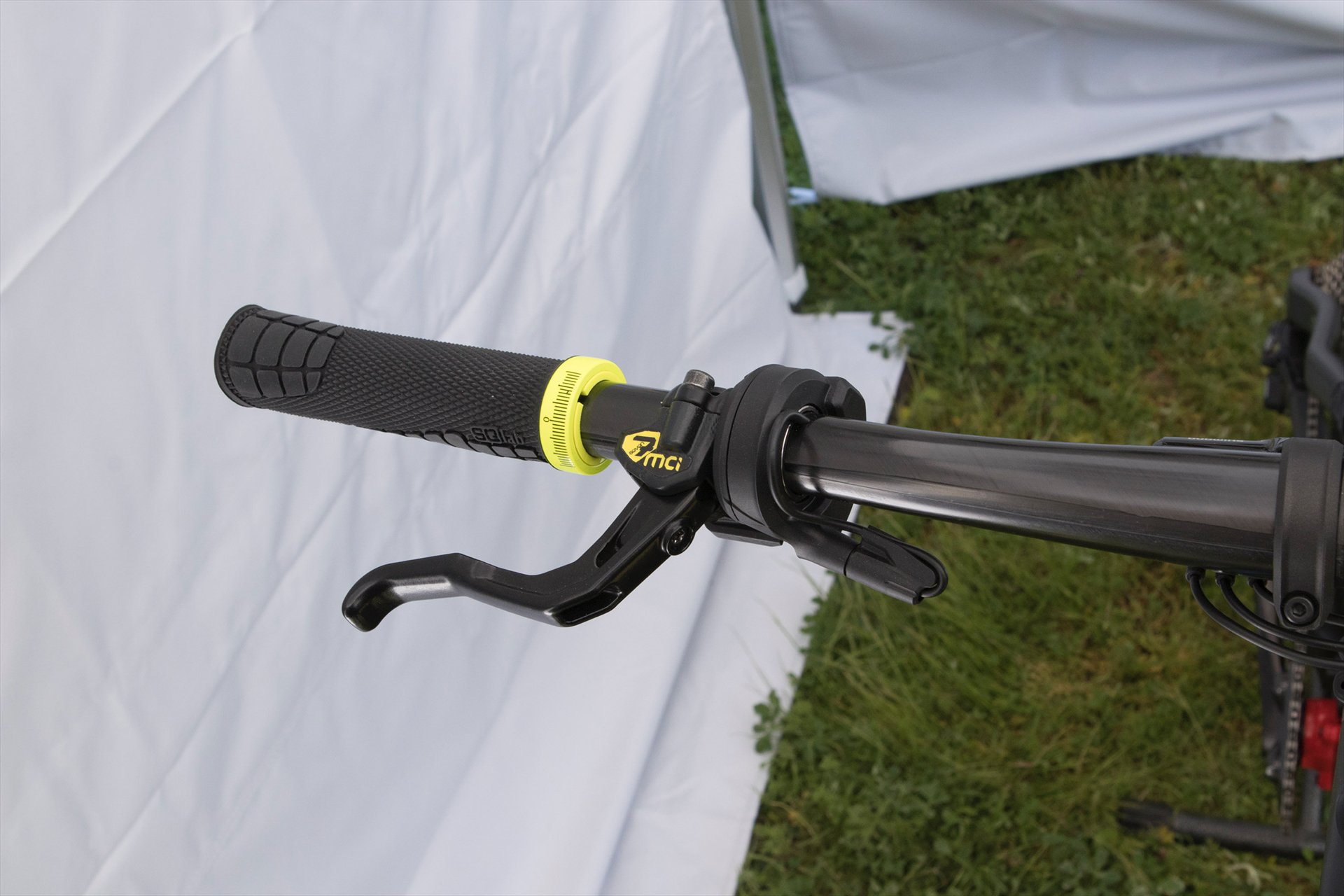
I do like the idea of no housing or cable to bang around making noise or wear through your paint or fork finish. Photo - Cam McRae
I will also admit that upon seeing the MCI system at Sea Otter, I thought it looked amazing. My reservations bubbled up just as quickly though and any benefits beyond the aesthetic seem marginal at best. Aerodynamics on a mountain bike? Even XC racers rarely get to speeds where aero becomes useful, but the removal of two thin lines in an area already prone to turbulence? I think we may be talking milliseconds over a long lap. I will agree that the lines are more protected, but it seems to me the odds of snagging or crimping lines fed from the end of your handlebar, through your stem and then to the two calipers, will be even higher than it is for exposed lines. But the quick connect system looks interesting and could prove beneficial for more conventional brake lines in the future.

With a Magura wireless Veyron post and a Shimano Di2 shifter, this cockpit looks as clean as they get. Photo - Cam McRae
I can see a market however. Pro XC racers who do no work on their own bikes, and who want the latest and greatest from their sponsor, would surely line up for this. After that it becomes a reach, but we aren't the target market anyway. At least not initially. These will be going on bikes as original equipment, so riders won't have decide on replacing their bikes for these, they'l only have to see a system in the showroom and decide to buy that bike.
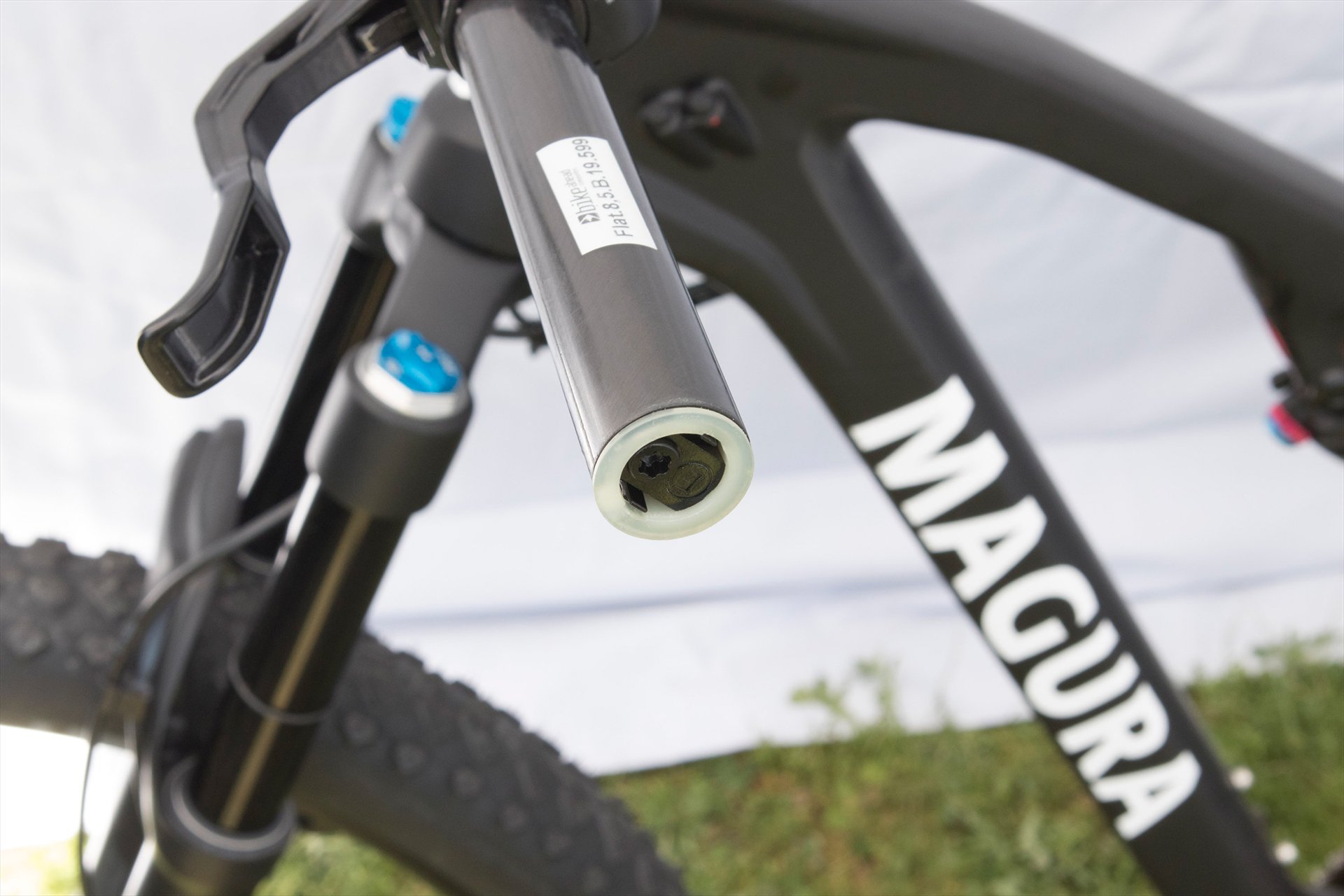
That's the bleed screw - right on the end of the master cylinder that lives inside your handlebar. This likely works fine knowing Magura, but what about if something breaks? Photo - Cam McRae
My final admission is that I have reacted negatively to products in the past and been dead wrong. When I first saw a remote adjustable dropper post, in a press release from Gravity Dropper, I saw no use for it at all. Those days I would climb the hill, stop and lower my saddle at the top and then do the reverse at the bottom. I saw no reason to be able to do that on the fly, so keep that opinion in mind.
Maybe I will be proven wrong and this trend will spread across the pond after masses of Euro consumers, who have been dying to conceal brake lines all these years, flock to Magura's new system. Either way this serves as a reminder that even good companies that make good products soil the sheets on occasion.
The MCi system gets my vote as not the best product of 2019.
See below for Magura's press release.
The new MAGURA Cockpit Integration (MCi) is the world’s first hydraulic brake that’s fully integrated into the handlebar. With no external tubings, the MCi gives riders a tidy cockpit, better aerodynamics and greater protection for hydraulic components. The MCi is part of the new MAGURA Integration Series.
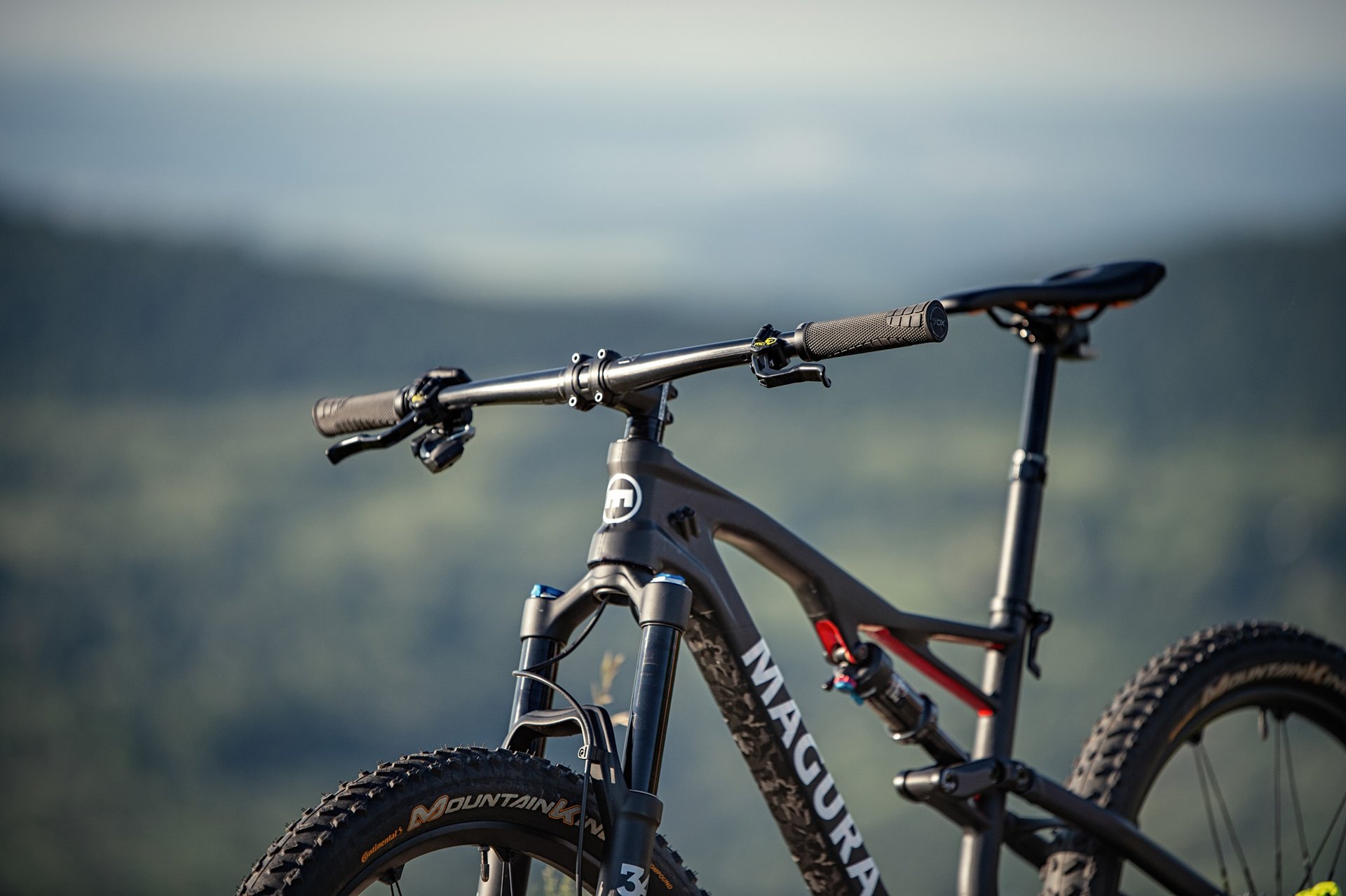
With this new MAGURA Integration Series, the German brake specialist has given us a completely new product series. It is characterized by unique integration solutions that further optimize the design and function of the already-proven MAGURA products. After successfully producing the integrated HSi rim brake and the HGi heated grips, MAGURA has now turned its attention to the cockpit.
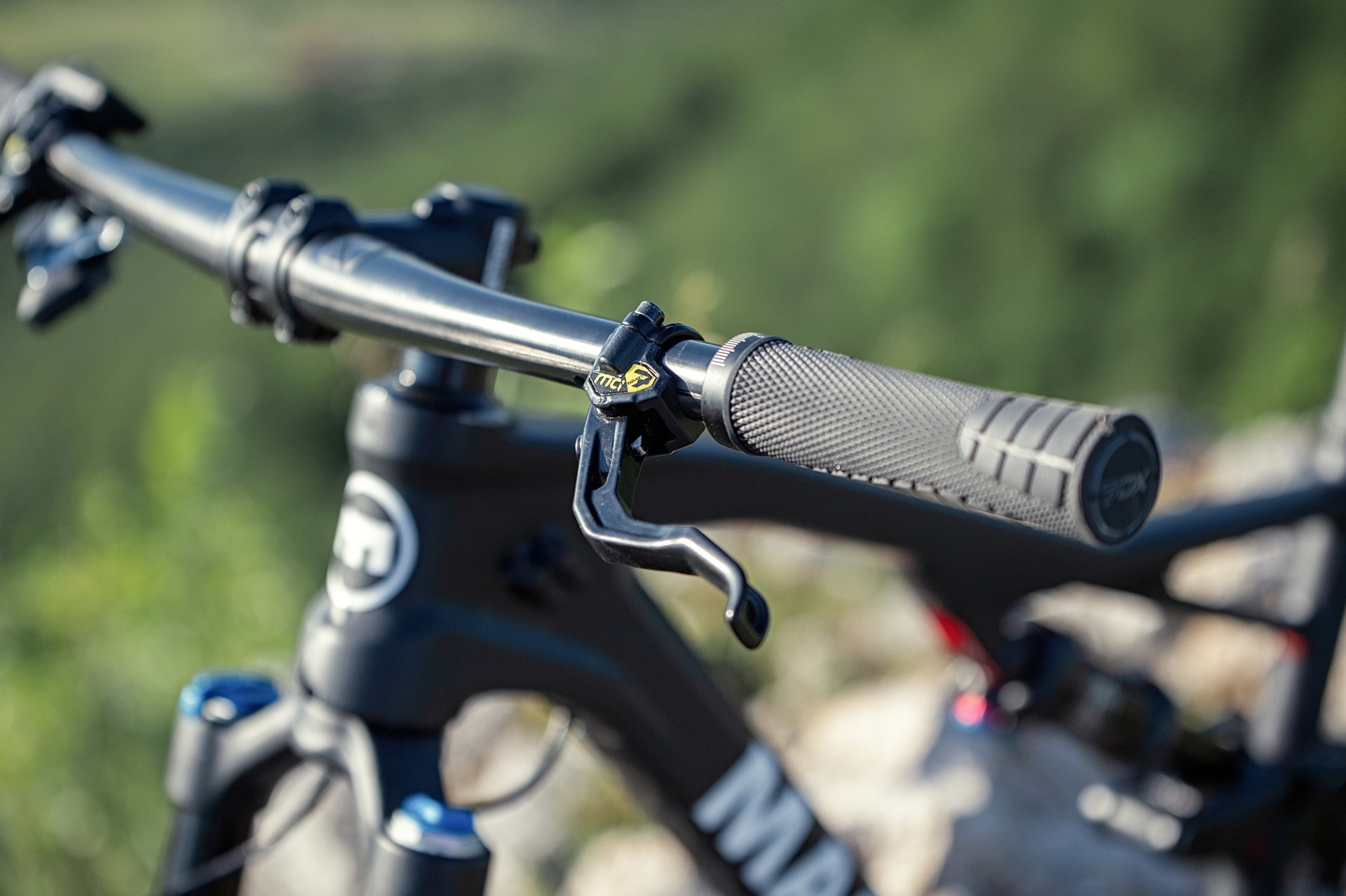
MAGURA MCi
The new MAGURA MCi has all wires and cables laid inside the handlebars for the first time. The result is a tidy appearance and enhanced functionality, offering effective protection against crashes and mechanical damage. The design of the new MCi also makes it possible for manufacturers to consistently extend the design language of the frame into the cockpit.
During the development of the hydraulic unit, the MAGURA specialists relied on in-house motorcycle know-how. The MCi functions in the same way as a retrofit hydraulic clutch for motorcycles. The heart of the MAGURA MCi is a cylinder, which is invisibly located in the handlebar grip area. The dimensions of the expansion reservoir and the piston diameter of the MCi correspond to the dimensions used in the MAGURA MT series, giving the MCi the same stability and braking force as conventional MAGURA MT brakes.
The MCi is available with 2-piston and 4-piston brake callipers.
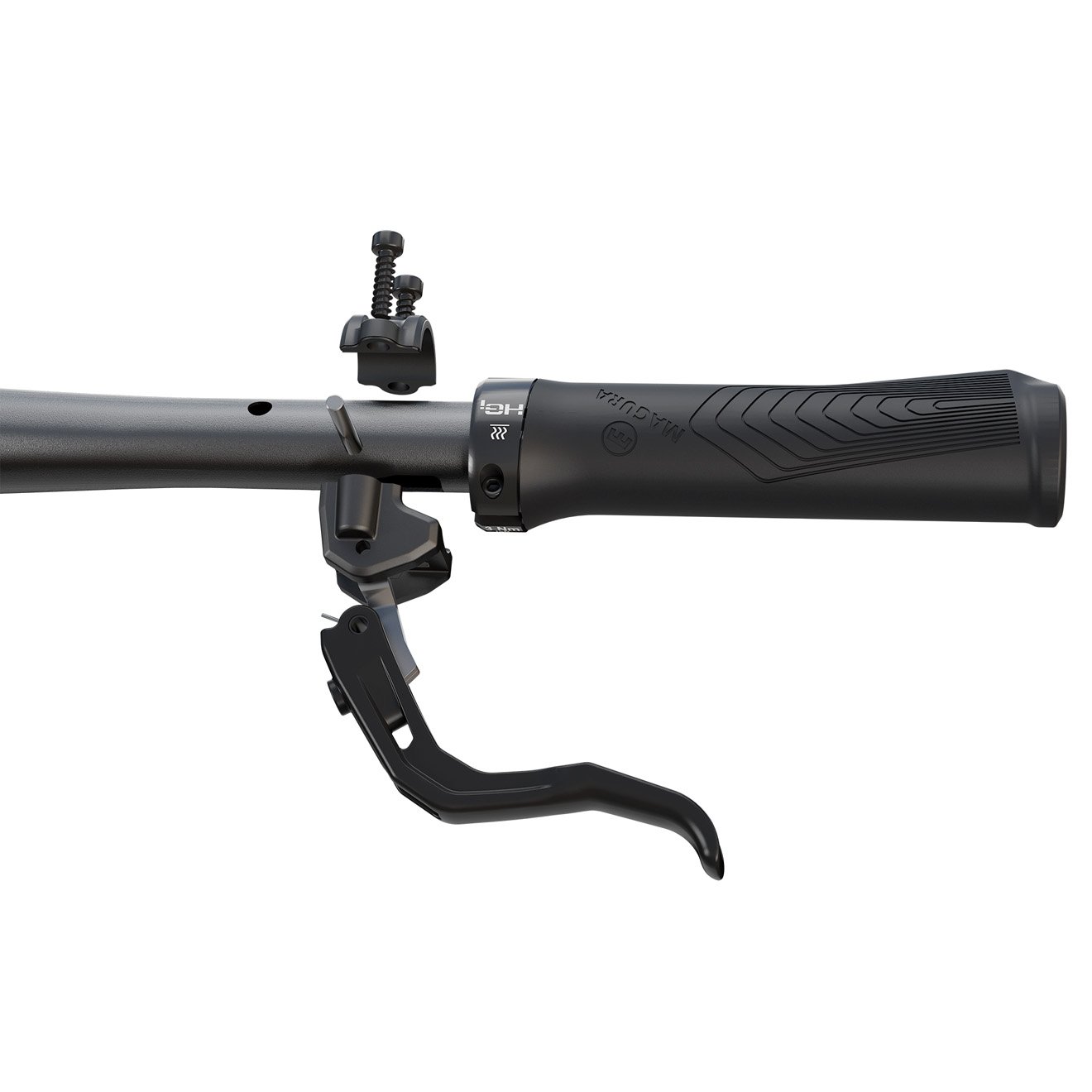
The MCi is actuated by a lever unit attached to the handlebar – the only visible component of the new brake. The system is equally suitable for mountain bike or urban use depending on the installed handlebar and stem unit. Thanks to the lever bearing point being close to the handlebar, however, the MCi gives riders a more direct braking feeling than all previous MAGURA brakes. The ratio between lever travel and braking force is also designed to be more progressive, refining the modulation of the brake.
The lever angle of the MCi is individually adjusted to each bicycle model and optimized for the best possible seating position. Special handlebar grips with a fixed core also allow a projection of up to 2cm at the handlebar end. The handle width is infinitely variable on the lever blade.
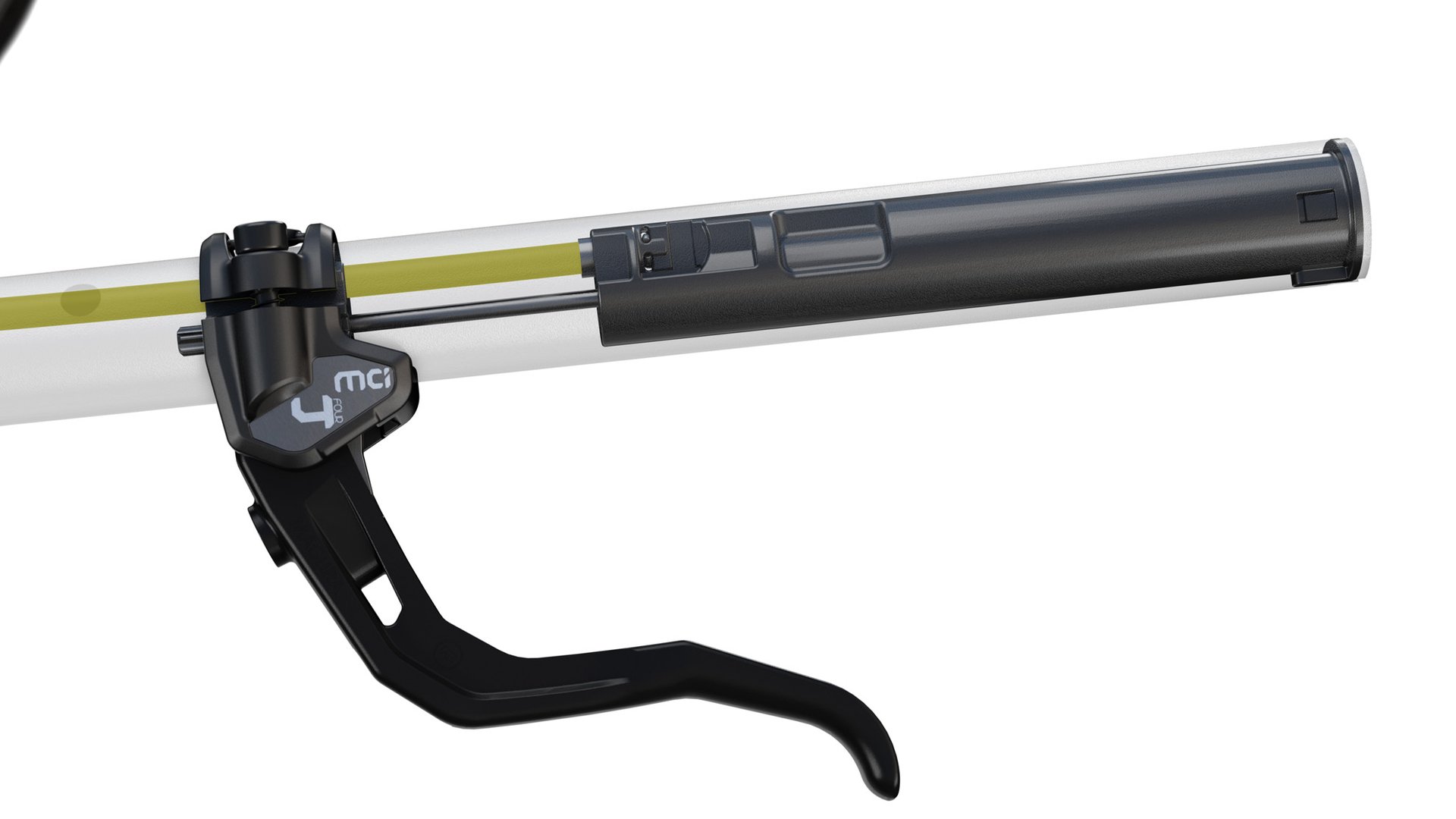
Easy maintenance and user-friendly – the MAGURA Easy Link
The development of the Easy Link was focused on user-friendly service and maintenance, plus of course a tidy cockpit integration. The MCi is the first MAGURA product to use the new Easy Link cable coupling. The new Easy Link coupling is a special plug-in connector that links the cockpit unit and the brake line. During a service, the cockpit unit can be easily separated from the cable within the frame. Brake bleeding is carried out by means of the proven MAGURA Easy Bleed Technology and a bleed screw at the handlebar end.
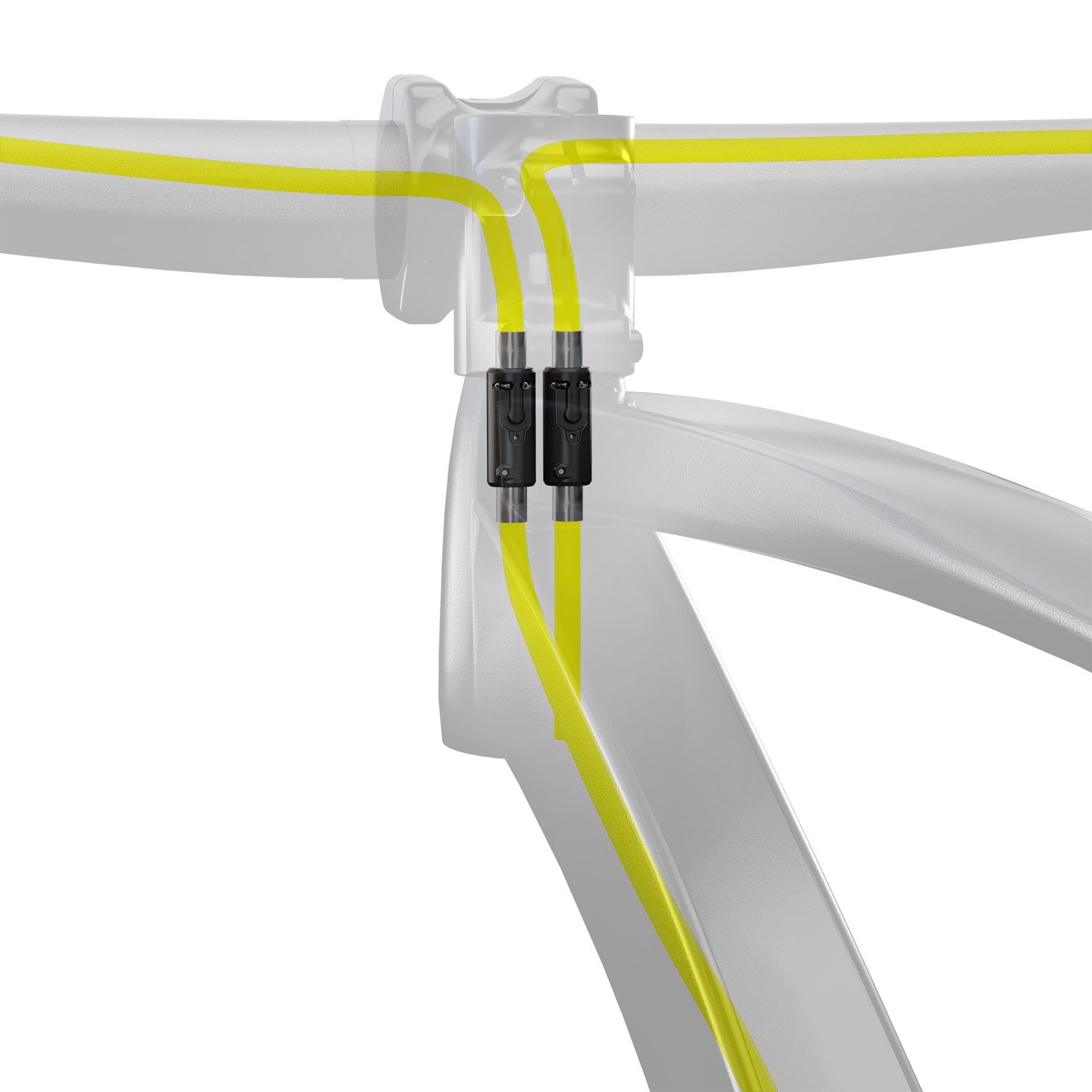
Initially, the MCi will only be reserved for OE partners. MAGURA will act as MCi system supplier during the development and will specify the components such as handlebars, stem unit and cable routing together with the respective bicycle manufacturer. An aftermarket version is not planned for the near future.
MAGURA will initially present a trail bike with MCi as the basis for this product innovation. The trailbike will have an almost-ready serial production version of the cockpit integration, the wireless MAGURA VYRON eLECT seat post, internal lines and a wireless SRAM AXS drivetrain. This setup means that the bike is entirely free of external cables & tubings. MAGURA will present the MTB study and the world‘s first
production bike with MCi cockpit at the Eurobike Media Days (July 2-4). MAGURA’s partner is a German brand manufacturer who will present the MCi for the first time on one of its urban bikes. The bike will be available to customers some time in 2019.







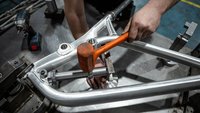
Comments
Vik Banerjee
5 years, 10 months ago
Things I don't want on my bikes:
1. motors
2. critical components operated by battery power
3. internal routing of cables
4. less tire clearance
5. proprietary parts that reduce my ability to maintain or adjust my bike to work well for me
Reply
fartymarty
5 years, 10 months ago
Cam, In addition to all the really good points above it limits you to the Magura stem and bars (or those that are eventually compatible with the system).
Reply
JT
5 years, 10 months ago
I see a few issues. First, routing the front brake line down the steerer and out and over the arch just looks like guillotine for the brake line between the arch and crown. Maybe not all at once, but that's some hard bends at bottom out. Second, with some tire and travel combos I could see a bit of tire buzz on the brake line as well. Third, in the event that one stacks it hard, the bars will have no limit to their rotation or the # of times they can spin (if run with AXS), so the possibility of breaking a brake line and not knowing it seems pretty high. A slight tear in a brake may not show itself well initially, but get worse in use after the crash, causing a brake failure.
I like the looks and concept, but i think a MTB is the wrong place to apply it.
Reply
bart
5 years, 10 months ago
I think running it behind would be the cleaner look....no need for it to go up front - or have a fork with a reverse arch......
Reply
JVP
5 years, 10 months ago
If you visualize this, there has to be a hole in the steer tube for the rear brake line to pass through into the downtube. Spin your bars more than 90* and you'll shear the brake line right off. There has to be a Trek-like stop to keep the bars from spinning.
Reply
Cooper Quinn
5 years, 10 months ago
1) This looks awesome. So clean.
2) Dear god, who let this picture go out with the press release? That poor stanchion.
Reply
AJ Barlas
5 years, 10 months ago
Lol. Great catch, Cooper!
Reply
Jimothy.benson
5 years, 10 months ago
Nevermind the stanchion, Why have a Magura-branded frame with those rain-catchers at the headtube? Could at least have photoshopped out the internal routing ports if they're not necessary...
Reply
Perry Schebel
5 years, 10 months ago
a simpler solution (fewer weird proprietary bits):
https://www.mtb-news.de/news/2019/05/03/stoll-t1-edition-clean-cockpit-bike/
Reply
JVP
5 years, 10 months ago
I'm not so open minded about this one. Magura can piss right off. All vanity with real downside to those of us who go hard and break things. This grumpiness brought to you by working in a bike shop many years ago, and working on my own bike today.
Maybe this is cool for your perfectly curated urban hipster commuter bike that's too expensive to actually commute in, but looks amazing when you go on a short jaunt for a bespoke $25 pint of open fermented sour.
Reply
Riley
5 years, 10 months ago
I'd like to see a mechanical disc brake with integrated cables like this. A proper bespoke bike without any cables showing would be awesome. Easier to set up and no bleeding. has anyone seen that done before? Do a quick google image search for "bididu ashi dualspeed" for a similar hydraulic brake set up.
Reply
Jimothy.benson
5 years, 10 months ago
Surely there must be other riders out there who go through bar end-caps as frequently as I do - clipping trees, etc. often means ending a ride with a hollow tube at the end of my bar. I'd be seriously worried about denting or worse to the cylinder in the bars.
That said, props to Magura for at trying something newn. I doubt this is the future of mountain biking, but I'm sure some element from this will lead to interesting innovations somewhere else.
Reply
Dan
5 years, 10 months ago
I bet this system will work great for commuters and other landlubbers. But for us dirtbags? Nope.
Also, kudos for keeping an open mind. Little doubt in my mind that some facet of this will soon apply to something we CAN agree on.
Reply
Cam McRae
5 years, 10 months ago
Excellent point Dan. That seems to keep happening doesn’t it? Some innovation that seems poorly imagined morphs into something that becomes indispensable.
Reply
Morgan Heater
5 years, 10 months ago
It is pretty. Wireless braking definitely seems like the next step.
Reply
delusional
5 years, 10 months ago
I'll probably be proved wrong, but doesn't seem that likely (or at least desirable) to me. Unlike seatposts and shifters when we just want to hit a button and have something happen, with braking the feedback through the lever is really important to balancing traction. Replicating that with electronics makes things way more complex, and is still unlikely to ever produce close to the same feeling.
I'm thinking here about cars and fly by wire stuff, that even at it's best never feels even close to as good as well engineered mechanical solutions. For instance, any car I've driven with power steering has given significantly less information through the wheel than good unpowered steering, and I've never driven a car with electric power steering that didn't feel like a (bad) computer game.
Reply
Please log in to leave a comment.